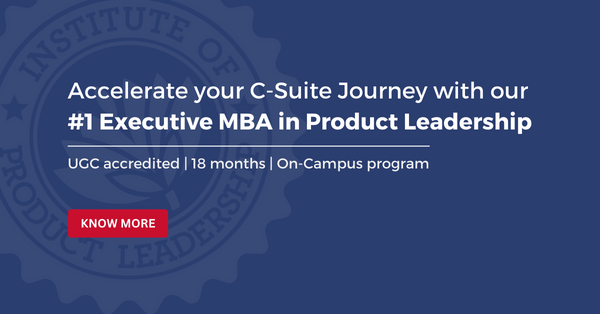What is an Executive MBA?
- blogs
- 5 min read
If you’re working in management and want to move forward in your career, look into Executive MBA programs. Executive MBAs are similar to traditional MBAs but with different schedules, rigidity of curriculum and networking opportunities.
Key Takeaways:
- Incorporating the specific program focus in your content helps attract the target audience interested in advancing their careers in product management.
- Highlight the networking benefits of Executive MBA programs, emphasizing how participants can build valuable business contacts across various industries and career levels, enhancing career prospects.
- Emphasize the flexibility of Executive MBA schedules, catering to the needs of working individuals with classes typically held on weekends and Fridays, making it feasible to pursue while maintaining a full-time job.
- Acknowledge the emphasis on soft skills in Executive MBA programs, appealing to individuals seeking to develop leadership and interpersonal abilities crucial for career progression in management roles.
- Stress the importance of commitment and alignment with company objectives, especially for those sponsored by their employers, as it ensures mutual benefits and maximizes the ROI of the program for both the individual and the company.
Networking
Executive MBAs are designed so that participants take all, or nearly all, classes with the same set of participants, providing a tremendous opportunity to gain business contacts with managers in a cross section of career levels and specializations at other companies.
More Restricted Schedule than Traditional MBAs
Class schedules are designed for working individuals and will likely take place on weekends and Fridays. There usually is only one time option per course, but ensure that you ask about the exact days and times before enrolling.
Hard Skills vs. Soft Skills
Unlike traditional MBA, Executive MBA programs focus more on soft skills, hard skills or a hybrid of both. Some participants and employers prefer learning soft skills like leadership, while others would rather learn concrete skills such as accounting. So if you want to get exposed to soft skills, an Executive MBA would be a right choice for you.
Time Commitment
Whether or not an Executive MBA program helps you advance in your career is a product of your time commitment. If your company pays for your program, they are making an investment in you so that your learning will benefit them in the future so ensure that you do justice to the program as well as your company.
On the whole, an Executive MBA program is significantly more beneficial than any traditional MBA. However, one should ensure that an Executive MBA program matches one’s education as well as career goals.
Frequently Asked Questions
Executive MBAs are designed for experienced professionals who wish to enhance their skills while continuing to work full-time. The curriculum often emphasizes leadership, strategic thinking, and practical application over a broader range of business topics.
Executive MBA in Product Leadership programs typically offer excellent networking opportunities, as participants come from diverse industries and have significant professional experience. Many programs facilitate networking through cohort-based learning, group projects, and alumni networks.
Class schedules in Executive MBA programs are tailored for working professionals, often taking place on weekends and Fridays. While schedules may be more restricted compared to traditional MBAs, they are designed to accommodate the busy schedules of executives.
Executive MBA programs often strike a balance between soft skills, such as leadership and communication, and hard skills, such as finance and marketing. However, the emphasis may vary depending on the program and the preferences of participants and employers.
The time commitment for an Executive MBA program can be significant, as participants balance coursework with full-time employment. It's essential to consider the expectations of both the program and your employer to ensure you can commit the necessary time and effort.
An Executive MBA can provide valuable skills, knowledge, and networking opportunities that can accelerate career growth and open doors to new opportunities. However, success in the program depends on your dedication and commitment to both learning and applying what you've learned in your professional context.






